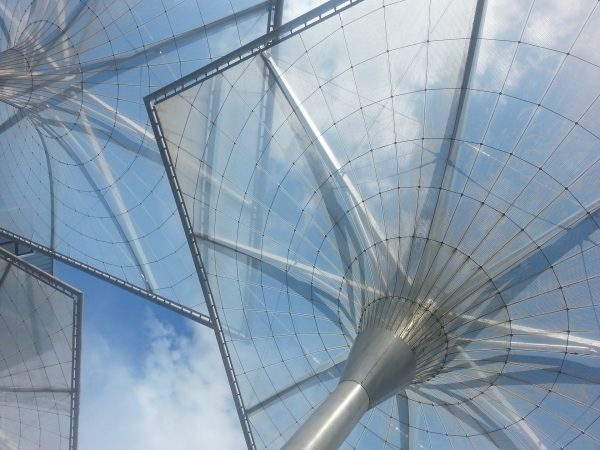
It is impossible to imagine our everyday life without PMMA (polymethyl methacrylate). The material, also known as acrylic glass or Plexiglas, is versatile and is used in a wide variety of areas - from the construction industry to the automotive industry to medical technology. In addition to its formability, the most important properties of PMMA are its
- transparency/transparency
- weather resistance and
- fracture and flexural strength
An absolute must in road traffic or on unlit paths is visibility. The fact that we can move around safely by day and night is also thanks to the versatility of plastics. PMMA in particular is used in LED-based light sources. In these, the filigree core element is the lens, which is responsible for conducting light through the luminaire geometry. The most important property of a plastic used here is therefore light transmission. Among high-performance plastics, acrylic glass ensures the highest transparency, which remains stable even after a long period of use.
The weather in particular always affects plastics that are present outdoors. PMMA is an exception here. As the basis for high-performance polymer applications, it has proven reliable and resistant to strong sunlight. The material withstands acids and alkalis of medium concentration, gasoline and oil - but it is not immune to ethanol, acetone and benzene. The material must be durable and weatherproof, especially in the construction industry or for outdoor applications. Here, the acrylic glass is subjected to a constant stress test in safety lighting or illuminated advertising. The material nevertheless performs a stable transparency!
Polymethyl methacrylate has also gained acceptance in surface-sensitive applications. It shows good fracture and flexural strength and, due to its excellent transparency, is also a standard answer for optical issues
addition to these properties, which are important in many areas of everyday life, PMMA also excels in another area: it is one of the more frequently recycled plastics. The recyclates come close to the performance of the original material in terms of quality. This is where the circular economy can set a standard!
With our polymer flow improver bFI A 3745, these properties of PMMA can be optimized without having to fear a loss of performance in terms of brilliance or transparency. First field reports from samples taken by our customers can be viewed here.
Recent Comments